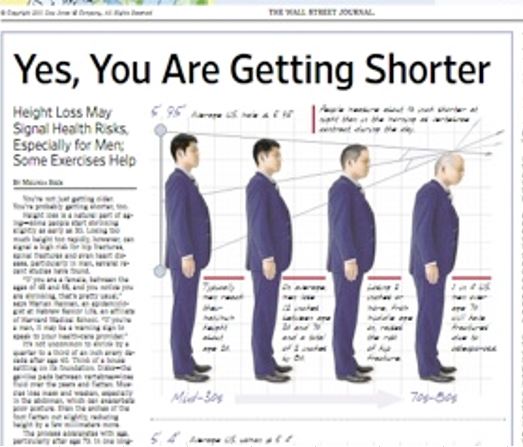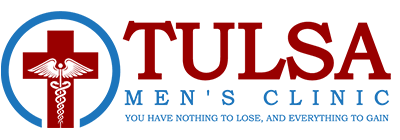Osteoporosis in Men
Get back to feeling yourself!
Loss of Height & Osteoporosis In Men
Research has shown that as you age, your height slowly decreases, and your body is more prone to injuries, such as broken bones. While it’s difficult to reverse this process, it’s important to know what you can do to help your body anti-age.
Growing shorter with age occurs among all people, both male and female. Aging affects height due to changes in joints, bones, and muscles. After the age of 40, people usually lose about 1 cm (about a half inch) every 10 years. Losing height is more rapid after the age of 70. A person may lose about 1 to 3 inches total in height with age. Height loss can be prevented to a certain extent by adhering to a healthy diet, remaining physically active, and working on helping to improve bone health. At the Oklahoma Men’s Clinic, we offer treatment options to help improve your bone health.
Bones, muscles, fat, organs, and water make up the human body. We tend to begin losing lean tissue around age 30. The liver, kidneys, muscles, and other organs lose some of their cells. The process of muscle loss is called atrophy. Bones begin to lose minerals and become less dense (a condition referred to as osteopenia in its early stages and osteoporosis in later stages). When your bones become less dense, they’re more prone to injury.
Working on improving your bone density is easy to do. Our staff will give you a series of thorough tests and diagnostics to determine the best treatment options for you. We will work closely with you to provide the help you need to get your bones healthy and back into shape. Healthy bones help you prevent injuries and stay in good shape.
Less leg muscles and stiffer joints can make basic functions more difficult. Stiffer and frailer bones, along with changing weight, can have a negative impact on your health and overall functions.
Fluctuations in total body weight vary for men and women. Men can begin gaining weight until about the age of 55, and then may continue to gain weight. This weight gain could be related to a dip in the male sex hormone testosterone, which causes a hormonal imbalance. Gaining extra weight can have a negative impact on bone health and overall fitness. Diet and exercise practices can impact a person’s weight fluctuations over their lifetime.
Your lifestyle choices and the treatments you choose can affect how rapidly the aging process occurs. Our staff at Oklahoma Men’s Clinic recommends the following to help prevent osteoporosis and other age-related changes to your body:
Consume a healthy diet of fruits, vegetables, whole grains, and healthy fats.
Limit your alcohol use.
Avoid tobacco products and illicit drugs.
Reverse the loss of muscle and bone with human growth hormone therapy.

